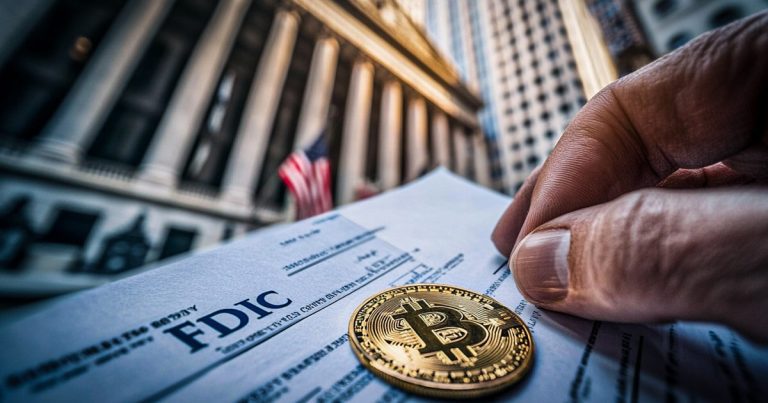The Federal Deposit Insurance Corporation (FDIC) issued a new guidance on March 28th to clarify that if FDIC scholar banks manage related risks with safety and soundness standards, they may engage in crypto-related activities without first obtaining approval from the institution.
Announced announcement Letter from a financial institution (FIL-7-2025)withdrawing FIL-16-2022, indicating major policy changes for the institution.
Acting Chairman Travis Hill said:
“Today’s action will turn the page of flawed approaches over the past three years. We hope that this will be one of several steps FDIC takes to lay out to lay out new approaches about how FDIC can engage in cryptographic and blockchain-related activities according to standards of security and integrity.”
The FDIC said it will work with the president’s working group on financial markets to issue additional guidance and coordinate with other regulatory bodies to replace previous interagency documents on digital assets.
Bohines, executive director of the Presidential Working Group on Digital Asset Markets, Decisions include “Great progress towards innovation and recruitment.”
The agency’s decisions reflect a broader effort to reset its approach to financial innovation.
“Pause” character
In recent years, several banks pursuing digital asset activities have reportedly received informal “suspension” letters dictating that they should cease engagement with cryptographic services, including custody, tokenized deposits and even basic retail crypto products.
Crypto Industry figures say these decisions are part of the “Chokepoint 2.0 Operation.” This is an effort by former President Joe Biden’s administration to stumble the growth of the US crypto industry.
hill I criticized the actions It is lacking in transparency and contributes to the perception that FDIC has discouraged innovation through its private enforcement tactics.
In a January speech, he admitted that the institution did not provide clear public guidance to the banks and instead opted for an ad hoc intervention.
He cited more than 20 cases in which banks received letters asking them to halt or delay crypto-related activities without formal rule creation or public comment periods.
Call to reevaluate
Hill emphasized that banks’ secret law compliance should not be used as an excuse to deny access to bank services, and called for a reassessment of how BSAs are implemented across financial institutions.
Recent internal discussions at FDIC Haven focused on enabling banks to pursue tokenized deposit services and other blockchain-based financial infrastructures without unnecessary regulatory delays.
The move will bring FDIC to close integrity with other regulators, including the Securities and Exchange Commission (SEC), which began formalizing its cryptographic regulatory framework.
It is also increasing pressure from industry participants and lawmakers to provide a consistent, transparent roadmap for lawful crypto-related services.
It is mentioned in this article






